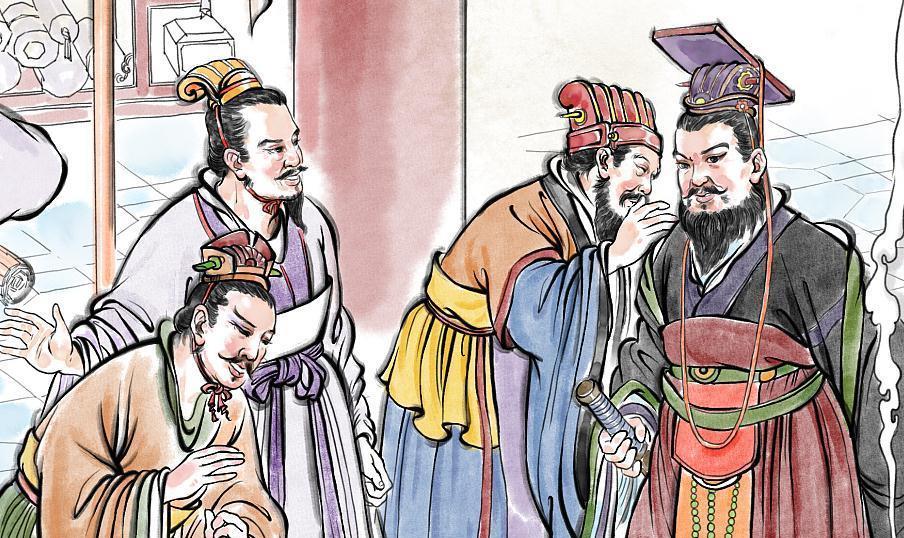Many people misunderstood, and the meaning of this sentence is: "Etiquette does not have to pursue strict etiquette among the people, and criminal law can be tolerant of scholars!" In fact, "etiquette is not enough for the people" is very easy to understand, the people have no status, and etiquette has no impact on them. And the scholar class will certainly be punished for breaking the law. Since ancient laws were made by monarchs, if the monarch pardoned them, the scholars who broke the law would not be punished by the law. If the monarch pursues the matter, even if the scholar does not break the law, the scholar will still not be able to escape. Therefore, the power of life and death in ancient times was in the hands of the monarch.

In addition, there is a sentence after "the criminal cannot be a doctor" called "the criminal is not on the side of the king". Although some criminal laws do not work for scholars, those who violate the criminal law cannot stay with the monarch. Of course, dynasties and dynasties are not absolute. For example, when Qin Xiaogong appointed shang martingale transformation law in the Qin Dynasty, Shang Martin proposed that "the prince committed the same crime as the common people". Later, the prince violated the laws of the Qin Dynasty and was supposed to be punished, because the prince was the future monarch and was exempt from punishment. However, the prince's teacher could not escape, so the prince's two masters, Gongzi Qian and Gongsun Jia, were punished. One was cut off the nose and one was stabbed. Therefore, some people have privileges, but in the Qin State, where the laws are strict, once the law is violated, the nobles cannot escape the blame, let alone ordinary scholars.
During the Western Han Dynasty, Li Guang served as a general on horseback and led more than 10,000 people to ride out of Yanmen to attack the Xiongnu, but was captured by the Xiongnu because they were wounded. Later, Li Guang fled back to the Han Dynasty halfway through, and according to the laws of the time, he should have been beheaded. However, the laws of the Han Dynasty also stipulated that those who broke the law could atone for their sins with money. So Li Guang used the money to buy a life, although he was reduced to a common man, but his life was finally saved. However, later, because of the urgent situation in the frontier, Li Guang was once again activated by Emperor Wu of Han and promoted to an official. Therefore, if a scholar breaks the law, as long as the monarch says a word, he can actually be exempted from capital crimes.
In the early days of the Qing Dynasty, Kangxi captured Aobai and could reasonably kill Aobai directly. However, Kangxi still handed it over to the minister to discuss how to determine the sentence. The ministers unanimously agreed that according to the laws of the Qing Dynasty, Ao Bai should be beheaded. Kangxi Nian had merit in front of him, so he was spared the death penalty and imprisoned instead. For another example, after Jiaqing succeeded to the throne, he arrested the corrupt official He Yan and raided his home, and according to the law, He Yan would be executed by Ling Chi. However, He yan's son married Qianlong's daughter Gu Lun and Princess Xiaoxiao, interceded for him, and He Yancai was saved from being delayed, and finally was given to commit suicide. According to the law, Fu Chang'an was also a capital offense, but Jiaqing pardoned him and suspended him for investigation. In the end, he was promoted to an official and spent his old age comfortably. It can be seen that the life and death of the ancients is completely in the hands of the monarch, "the king wants the subject to die, and the subject has to die!" "The law, all for the privileged, opens the back door. In the Han Dynasty, you can also spend money to buy life, so the laws of different dynasties are different, and the "punishment can not be a doctor" is estimated to work in the pre-Qin period, but after the pre-Qin, it is estimated that it does not work very well.